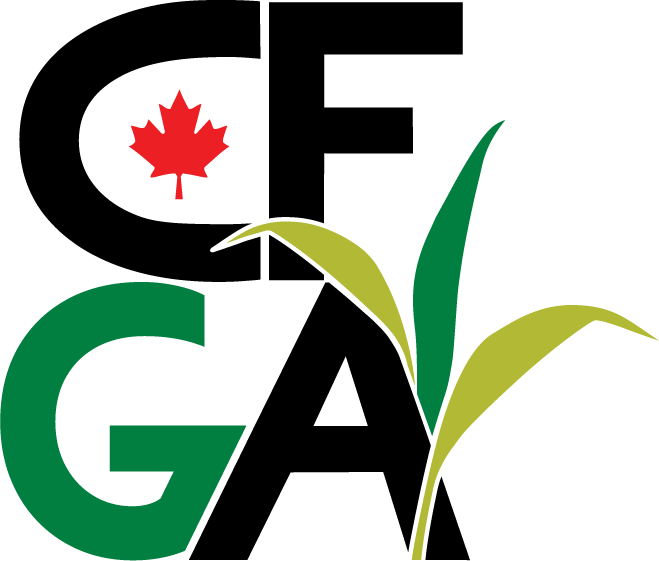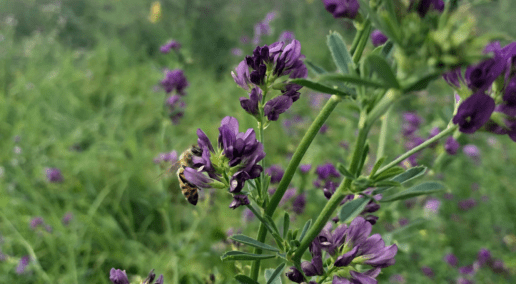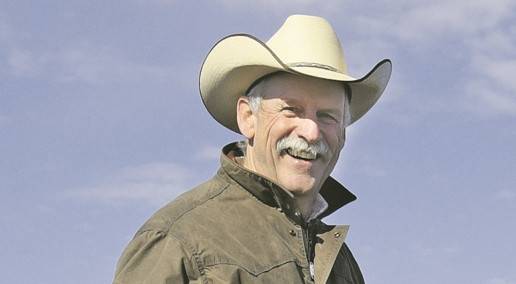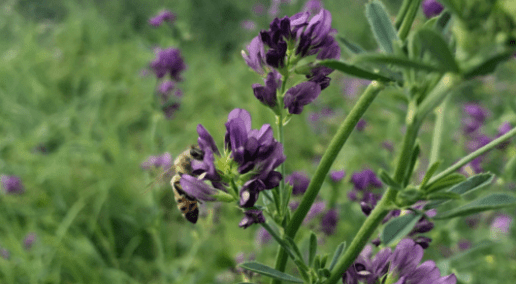Madeleine Arseneau, a knowledge officer with the Living Labs Division at Agriculture and Agri-Food Canada (AAFC), presented at the CFGA’s 14th Annual Conference, Forage Resilience in a Changing Landscape: Manage risk. Overcome challenges. Discover opportunities. Her presentation looked at knowledge exchange and its role in successful, long-term adoption of practices and technologies in the agricultural sector.
Madeline explained that living labs are innovative approaches designed to address pressing environmental, economic and social challenges across various sectors, including agriculture and health care. Specifically within agriculture, these labs focus on managing innovation to tackle issues such as climate change and other environmental and agricultural challenges.
The concept of living labs gained prominence with the launch of the nationwide network in 2018, aimed at accelerating the development and adoption of sustainable practices. Madeline outlined the three core principles of living labs:
1. User-centred innovation: Ensuring that producers are actively involved in discussions and activities alongside researchers.
2. Partnerships: Collaborating with industry, NGOs, government bodies, producers and scientists.
3. Real-life context: Conducting experiments in real-world settings rather than controlled lab environments, addressing real issues such as forest fires and droughts.
The living lab innovation cycle has a continuous nature of co-development, testing and evaluation that is ongoing, reflecting the iterative process of living labs.
The first Living Laboratories Initiative from 2018 to 2023 focused on agro-environmental issues. Agricultural Climate Solutions (ACS) Living Labs is a new, 10-year program that addresses carbon sequestration, greenhouse gas emission reduction and other environmental benefits. In this program, the living labs operate as part of a nationwide network, utilizing a shared approach while adapting to local contexts. Knowledge exchange is pivotal, driving innovation and ensuring broad-scale adoption. This knowledge exchange supports innovation and broadens impact and the sharing of experiences across living labs, including both successes and challenges, helps refine approaches and strategies.
The presentation touched on the significance of effective knowledge translation and transfer (KTT) tools, such as podcasts, fact sheets and visual storytelling. She emphasized the iterative nature of knowledge plans, which should cater to different audiences and continuously evolve based on feedback. Ensuring that producers remain central to the process is crucial for successful adoption.
Finally, Madeline spoke about the value of storytelling in disseminating knowledge. She stressed that capturing both successful and failed attempts can provide valuable lessons and drive greater adoption of innovative practices.
2023 conference recordings
To hear all of the presentation, you can purchase access to it and all of the recordings from the 2023 conference proceedings. Note, if you attended the 2023 conference, the recordings are available for free to those who registered for the conference. For more information, email [email protected].
2024 annual conference
We’re heading to Guelph, Ontario Dec. 3 to 6 for the Canadian Forage and Grassland Association’s (CFGA) 15th annual conference. The CFGA is excited to partner with the Ontario Forage Council on this not-to-be-missed event that will celebrate the important environmental and economic role forages and grasslands play in Ontario, across the country and around the globe.
This year’s theme is Roots to Success: The Foundation of Resilient Agriculture. During this not-to-be-missed three-day event, we will learn about exciting and cutting-edge happenings in the forage sector and gain valuable information and inspiration for anyone involved in the forage and grassland sectors across the country. Visit the conference website for more details.
.
Back to Admin



Leave a Comment